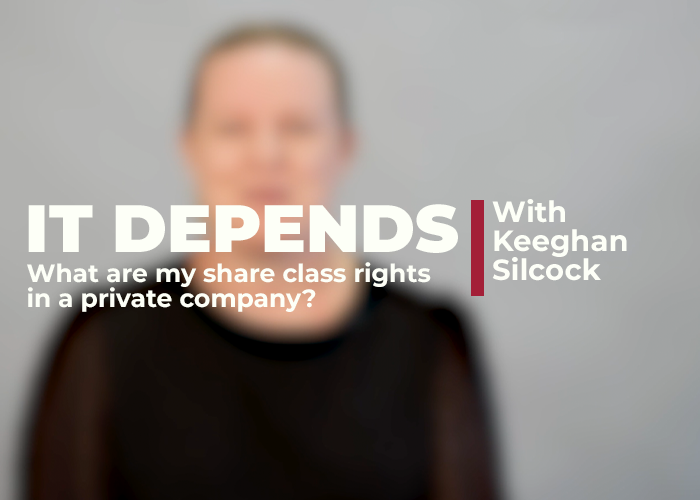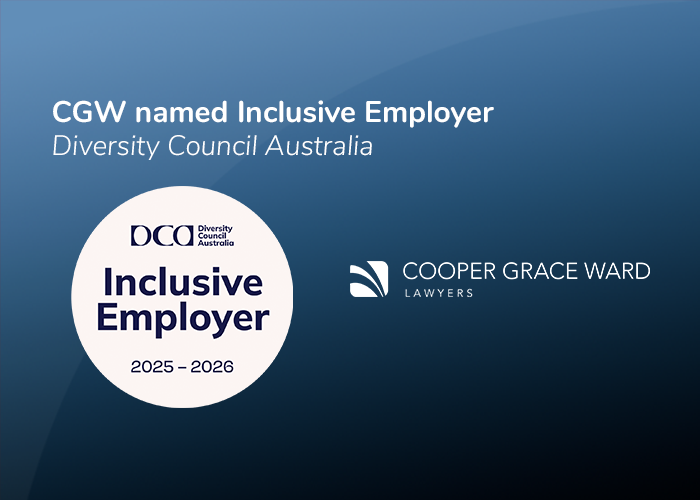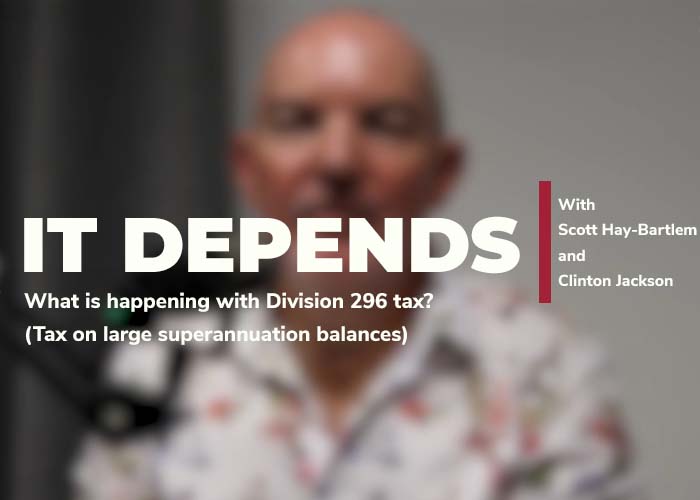In this edition of ‘It depends’, senior associate Keeghan Silcock talks about what your share class rights are in a private company.
VIDEO TRANSCRIPT
Hi and welcome to another edition of It Depends.
Today I’ll be talking about what are your share class rights in a private company.
What are my share class rights in a private company?
It depends. The share class rights in each private company are not uniform. That is not all ordinary shares will have the same rights in each different private company. The way that your rights as a shareholder in a company is determined is based on an agreement between the company and the shareholder. It is quite common to see that the share class rights are documented in the constitution of the private company. Or you may see that these are agreed between the shareholder and the company in a separate terms of issue sheet.
What happens if there is no written record of share class rights?
So, what happens if there is no written record of the rights attaching to a particular class of shares? For example, you might not have a constitution for a company or the constitution might be silent as to the rights that attach to a particular share class. In this case, there are some replaceable rules in the Corporations Act, which could give some clarity around the rights that attach to that class of shares, for example, there is a replaceable rule which says that in the absence of any evidence to the contrary, each shareholder in a company will have one vote on a show of hands or otherwise have one vote per each share held if a poll is demanded. There is also a presumption at common law that all of the classes of shares will carry the same rights and liabilities unless there is evidence to the contrary. So, if you have some rights that are written down for a particular class of shares but not others, then you might find that there is a presumption that both of those classes of shares carry the same rights and liabilities.
How can share class rights be varied?
If you want to vary the rights that attach to a particular class of shares then you could do this following the provisions in the company’s constitution. However, there may be constitutions which don’t set out the way that the share class rights can be varied. Or again, you might not have a constitution for a company, in which case you would need to follow the procedure set out in the Corporations Act. That procedure involves special resolution by all of the shareholders of the company, as well as approval by the persons holding at least 75% of the class of shares, the rights of which you’re looking to vary. It’s important that you seek tax advice before varying the rights that attach to a class of shares because there can be tax consequences of doing that. For example, value shifting issues.
If you have any questions about the rights that are attached to a class of shares in a private company or varying the share class rights, please feel free to contact member of our team.








